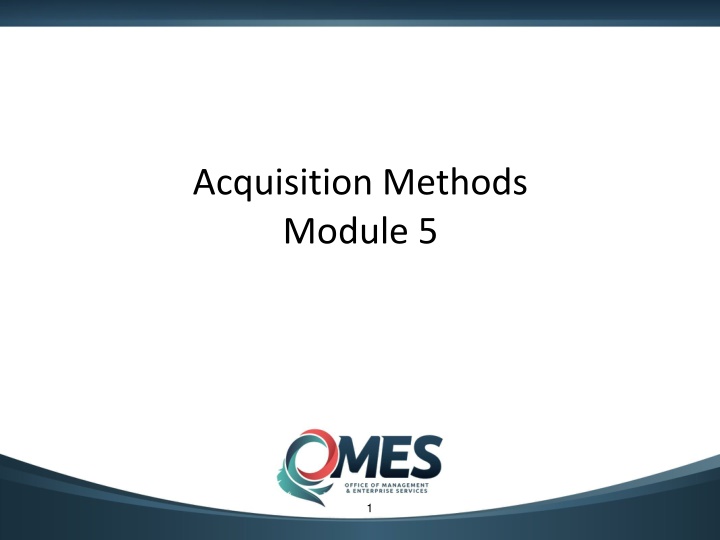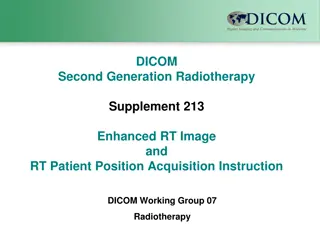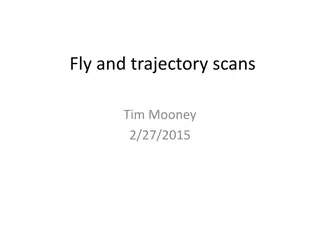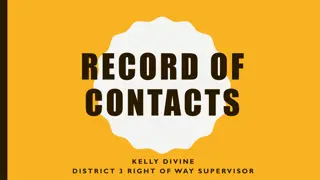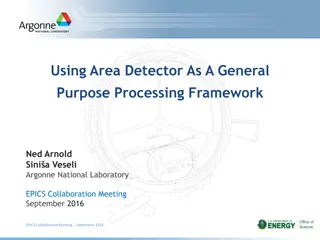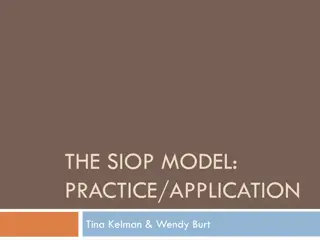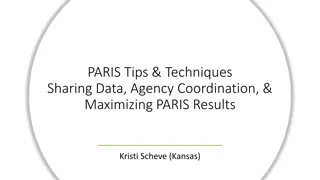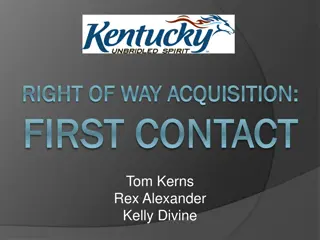State Agency Acquisition Methods
This content explores various methods and regulations related to state agency acquisitions, including exemptions from bidding, mandatory contracts, disposal of surplus property, and more. It emphasizes the processes, requirements, and key considerations involved in acquiring goods and services for state agencies.
Download Presentation

Please find below an Image/Link to download the presentation.
The content on the website is provided AS IS for your information and personal use only. It may not be sold, licensed, or shared on other websites without obtaining consent from the author.If you encounter any issues during the download, it is possible that the publisher has removed the file from their server.
You are allowed to download the files provided on this website for personal or commercial use, subject to the condition that they are used lawfully. All files are the property of their respective owners.
The content on the website is provided AS IS for your information and personal use only. It may not be sold, licensed, or shared on other websites without obtaining consent from the author.
E N D
Presentation Transcript
Acquisition Methods Module 5 1
Learner Outcomes Students will: Recognize what a state agency must obtain from OCI if they have obtained a lowest and best bid from another entity to purchase the item from the outside source. Recall what is written for a specific contract period with a provision allowing state agencies to place orders as acquisitions are needed. Know that state agencies shall make acquisitions from mandatory statewide contracts in any dollar amount. Recognize the process if a state agency desires to acquire surplus property. Identify which procurements are exempt from bid. 2
Learner Outcomes Students will: Recall the process for a non-exempt state agency to dispose of state surplus property it no longer needs. Recognize where the final product of the contract for professional services should be filed. Recognize professional services contracts must be signed by the state agency's chief administrative officer or the chief administrative officer of the requisitioning unit such as in Title 18. Recall examples of professional services, such as speech therapist and physician, exempt from competitive bidding as in Title 18. Recall which type of acquisition is restricted to one supplier. Name who must sign a sole source/sole brand certification. 3
Exempt from Bid There are some contracts within the state that MUST be used (by law) if they offer a product that meets the agency s minimum requirements. These contracts are exempt from bid, which means that you may order from that contract without competitive bids. 4
Exempt from Bid The statutes governing these contracts can be found on the Oklahoma Supreme Court Network website at www.oscn.net. To read a statute in its entirety: 1. Log on to www.oscn.net. 2. Select Legal Research in the menu. 3. Select Oklahoma Statutes Citationized. 4. Search or scroll through and select from the list of statutes. 5
Is it Available from a Mandatory Source or Property Reutilization? The first question you need to answer is whether or not it is available from: State Use 74 O.S 3001-3010. Oklahoma CorrectionalIndustries 57 O.S. 549.1. Property Reutilization (surplusproperty) 74 O.S. 62.1-62.9 & 85.9.B. A Mandatory Statewide Contract 74 O.S. 85.5.G.3. 6
Exempt from Bid State Use (Mandatory) Procurements made under the State Use Act shall be exempt from bid. The State Use commodities and services have absolute priority over all other methods of acquisition. The State Use Committee administers a procurement program to promote meaningful and gainful employment opportunities for persons with severe disabilities. A contracting officer, dedicated to the State Use program, works for OMES to solicit, develop and negotiate contracts with qualified agencies and individuals for the program. 7
Exempt from Bid OCI (Mandatory) The Department of Corrections operates and maintains industries and agricultural programs at the penal institutions under their jurisdiction. This entity isknown as Oklahoma Correctional Industries. OCI products may be used for construction, operation, maintenance or use of any state agency. Upon request, OCI provides labor and manufactured products for the repair, construction and maintenance of historical sites and state parks. 8
Exempt from Bid OCI (Mandatory) Articles and services provided by OCI may be purchased directly by any state agency. To order from OCI, submit the proper requisition or purchase order directly to the prison industries program. State agencies may also bid items available by OCI open market; however,OCI must be included in the bid. If a state agency has obtained a lowest and best bid from another entity, they must still obtain an exception from OCI to purchase the item from the outsidesource. 9
Exempt from Bid Statewide Contracts State agencies are required to use Statewide Contracts when the contract offers products or services that meet reasonable agency requirements. If an agency desires to purchase an item that is on a Mandatory Statewide Contract from any other source, an exception is required from OMES. The OMES form (CP-109), Mandatory Statewide Contract Request for Exception, can be found on the OMES website. 10
Exempt from Bid Statewide Contracts Competitively bid by OMES. Specific contract period. Specific type of acquisition. Indefinite delivery type. Reduces agency administrative burden by allowing agencies to place orders for supplies or services as needed. 11
Exempt from Bid Statewide Contracts Defined in Title 74, Section85.2.37. An indefinite delivery contract for specific acquisitions entered into by state agencies during a specified period with a provision allowing the agencies to place orders as acquisitions are needed for delivery during a specifiedperiod. Currently there are over 75 competitively bid non-information technology statewide contracts in place. 12
Exempt from Bid Statewide Contracts Central Purchasing primary focus. Two types mandatory and non-mandatory. Large volume or quantity statewide contract purchases. Exceptions approval prior to purchase (OMES Form CP- 109). 13
Exempt from Bid Statewide Contracts Mandatory statewide contract The state purchasing director may designate a statewide contract for mandatory use. State agencies shall make acquisitions from mandatory statewide contracts regardless of the acquisition purchase price. Non-mandatory statewide contracts State agencies are encouraged to use non-mandatory statewide contracts. Whenever a state agency acquires a product or service from an alternate source, the acquisition shall be made in accordance with the Central Purchasing Act, the rules of this chapter and any other laws and rules applicable to the acquisition. 14
Exempt from Bid State Printing State printing needs are supervised and contracted through OMES, including: All public printing and binding authorized by the Legislature, and for the governor, Supreme Court, state institutions and state officers, boards or commissions created pursuant to the laws of the state. Contracts for printing and binding are subject to the same terms and conditions as other contracts for state supplies and are let by OMES as provided by law. 15
Exempt from Bid Interagency Mail OMES operates a mailing service for state agencies and departments located in Oklahoma City. IAM serves as a clearinghouse for interagency communications and deposits the state's mail with the United States Post Office. The statutes disagree on the mandatory use of state agency mail with the United States Post Office. Neither statute makes the purchase of a postage meter exempt from competitive bid. It may be exempt from bid if acquired from an authorized Statewide Contract, but it is not exempt under either of the postage statutes. Ownership of a meter is not required if you are using Interagency Mail for all your U.S. Post Office mailings. 16
Exempt from Bid Interagency Mail 74 O.S. 76 states every state agency and department in Oklahoma City must participate in the mailing service, except: Department of Human Services Oklahoma Commission for Human Services Oklahoma Tax Commission University of Oklahoma Medical Center Oklahoma Employment Security Commission Oklahoma Legislature Oklahoma Medical Center State Department of Health in the Health Sciences Center 17
Exempt from Bid Property Distribution OMES provides rules for state agencies for disposal of surplus property. The rules include: Standards for disposal of records. Methods for removal or disposal of surplus property. Acquisition by state agencies and authorized entities of surplus property and management of surplus property programs. 18
Exempt from Bid Property Distribution All state agencies shall make maximum use of surplus property before acquiring new goods unless they can obtain a better value in the open market. If a state agency desires to acquire surplus property, the state agency may contact Property Distribution to determine property availability. 19
Exempt from Bid Property Distribution If a non-exempt state agency desires to dispose of state surplus property it no longer needs, the state agency shall request the approval of the State Surplus administrator to dispose of the property through authorizedmethods. Surplus property is available through OMES to state agencies and authorized entities, including political subdivisions, school districts and nonprofit entities of Oklahoma. Property Distribution is also responsible for disposing of Federal Surplus in Oklahoma. 20
Exempt from Bid Property Distribution The chief administrative officer of each state agency subject to this act maintains a current list of all surplus property held and disposed of by that agency. The list includes: Location where surplus property is maintained. Purchase price. Selling price and date sold. If transferred, to which state agency or authorized entity. If otherwise disposed of, what manner of disposal. 21
Exempt from Bid Property Distribution Any costs incurred by OMES in the sale, trade, distribution or disposal of surplus property having minimal or no value (in excess of any monies received for the property) may be charged against the state agency transferring the property to OMES. The surplus property lists are available upon request to OMES, the state auditor and inspector, the governor or any member of the Legislature. 22
Exempt from Bid Interagency A state agency may contract with any other department of state government or institution pursuant to Title 74. A state agency may contract with any "public agency" pursuant to Title 74, which includes a political subdivision of this state or another state and any agency of this state or the United States. Acquisitions shall not be made for the purpose of evading competitive bidding requirements, provisions of the Oklahoma Central Purchasing Act, rules or provisions related to the State Use Committee. A good rule to follow when considering whether to contract with another agency or to bid is to ask two questions: Is the product/service they provide part of their agency mission? Is any part of the project going to be performed by someone other than the agency? If the answer is yes, it is not exempt. 23
Exempt from Bid Interagency New law effective Nov. 1, 2015, pursuant to Senate Bill 0346 states: If you are entering into a Memorandum of Understanding or a Memorandum of Agreement with any agency, department, or organization receiving appropriated money, grants, or contracts, from the State of Oklahoma or funds from the Federal Government, you are required to publish a report on your website and to the documents tab on ok.gov website within 15 days of theagreement. 24
Exempt from Bid Title 18 Professional Services A state agency may contract for professional services as defined in Section 803 of Title 18. Be aware that these professional services defined have the wording pursuant to of the Oklahoma Statutes, defining what constitutes a professional service that is exempt from competitive bidding under Oklahoma law. In most cases, they must be licensed or certified in the State of Oklahoma and you must be using them for the service in which they are licensed or certified. The attorney general s approval for any and all legal services as well as getting a copy of their bar card and verifying they are in good standing with the bar association. A copy of the certificate of a CPO or other licensed individual must be obtained verifying they comply with Oklahomalaw. If the final product of the contract is a report, a copy of the report is filed by the agency with the state librarian and archivist. 25
Exempt from Bid Title 18 Professional Services There are restrictions on contracts within one year after termination of employment (85.42) for some state employees. Supplier must sign a sworn statement certifying the state employee was not previously involved in the development of the contract. Uniform rates must be used for duration of contract. Attach license to requisition when professional licensure is required. 26
Exempt from Bid Title 18 Professional Services Attach attorney general approval for attorneys. Contracts must be signed by the state agency's chief administrative officer or the chief administrative officer of the requisitioning unit. Exempt from competitive bid are professional services found in Title 18 O.S. 803 that include but are not limited to professional engineers, physicians, attorneys, psychologists, registered nurses, speech therapists, professional counselors and veterinarians. 27
Exempt from Bid Fixed Rate OMES establishes criteria and guidelines for services that qualify for a fixed and uniform rate. Under this statute, fixed and uniform rate contracts are limited to contracts for services provided directly to persons benefiting from the service and cannot be used by a state agency to employ consultants or make other acquisitions. 28
Exempt from Bid Fixed Rate Requests for a fixed and uniform rate qualification are submitted to OMES along with supporting documentation. OMES (through Central Purchasing) will approve or deny the request. If OMES approves the request, the state agency establishes a fixed and uniform rate for the service subject to approval in a public hearing. No contracts can be entered into until the rate has been approved. The OMES director (through Central Purchasing) may review, suspend or terminate a contract entered into under this statute at any time if the contract is determined not necessary, is excessive or not justified. 29
Exempt from Bid Fixed Rate Within two weeks after the Legislature convenes, each state agency furnishes a complete list of: All the types of services paid for by uniform fixed rates. The amount of the rate last approved by the agency for the service. The number of contracts in existence for each type of service. 30
Exempt from Bid Fixed Rate The state agency specifically identifies any rate which the OMES director has determined to be excessive. This list is furnished to: The speaker of the House of Representatives. The president pro tempore of the Senate. Any member of the House or Senate who requests it. 31
Exempt from Bid Utilities Utility services regulated by a state or federal regulatory commission, or by municipal ordinance, or by an Indian council for price and/or services are exempt from bid and can now be paid for using the state P-card. 32
Exempt from Bid US General Services Administration contracts are open to state and local governments for use (see restrictions on each contract). SeePIM (Procurement Information Memorandum) 2000-02 for restrictions on use. Visit http://www.gsa.gov/portal/content/105300 to learn about programs available to state and local governments. 33
StateResources Does your agency have a contract for this item? If yes, purchase directly from the contract. If no, determine if another agency can supply the item/service and meet the minimum requirements. 34
Additional Considerations Some exemptions and special agency requirements are not found in the Central Purchasing Act. Your agency may have exemptions mandated by federal statute, written in the Oklahoma State Constitution where your agency was formed, or in the special section of statutes created for your agency. Your agency may also have special restrictions that can only be found in one of these areas or in your agency administrative rules or purchasing procedures. You should read all legislation that affects your agency and the programs for which you have purchasing responsibility. Be sure to read the wording carefully. Being exempt from competitive bid procedures of the Central Purchasing Act is not the same thing as being exempt from the Central Purchasing Act. In the first case, you are still required to comply with the other requirements of the act, such as reporting. 35
Sole SourceProduct A sole source is a type of acquisition, based upon specifications needed by an agency that restricts the contract to onesupplier. 36
SoleSource To use the sole source method: Clearly and convincingly demonstrate a true sole source situation exists using the criteria by type listed in PIM (Procurement Information Memorandum) 99-03. Document in the file and be prepared to attest to the facts behind such determination in the event of an audit, protest, public inquiry or litigation. The sole source must be documented on the purchase order in PeopleSoft. All sole sources are required to be submitted to the state purchasing director. 37
Sole SourceProcurement Conditions for use of sole source procurement Used only if a reasonable requirement is available from a single supplier. A good rule is to explain why no other product/service can perform the minimum function needed to comply with the agency s mission. A requirement for a particular proprietary item does NOT justify a sole source procurement if: There is more than one potential bidder for that item (this is a sole brand). For example, John Deere lawn mowers. Additionalconsiderations If federal funds are being used, it may be prohibited to do a sole source or use a bid where there is only one response (single source). 38
Sole SourceProducts Items manufactured and marketed by a person or firm having exclusive right to manufacture and sell the product. If multiple distributors exist, the item is not eligible for sole source procurement. Purchase requires written justification from the using agency including the research completed to assume the sole source. Purchases greater than the agency s monetary procurement authority must be approved and issued by OMES using the Sole Source Certification Form on thewebsite. 39
Sole BrandAcquisition A Sole Brand Acquisition restricts the acquisition to one manufacturer or brand name; i.e., John Deere. 40
Sole BrandProcurement Conditions for use of sole brand procurement: Used only if a specific and reasonable requirement is available from a single manufacturer. Agency procurement staff should research each instance to assure there are no resellers through online searches, research of the manufacturer s website and checking other government contracts, such as General Services Administration (GSA) . A requirement for a particular brand item must be bid if: There is more than one potential bidder for that item. 41
Sole Source or Sole Brand Acquisition Certification The Sole Source or Sole Brand Acquisition Certification (OMES Form CP-002) must be completed and signed by the chief administrative officer of the agency on all sole source and sole brand acquisitions and submitted to the state purchasing director if it exceeds the agency s threshold authority. Areport is given to the Legislature each month detailing all sole source/sole brand acquisitions made. The formis located on the OMES website. 42
Sole Source/SoleBrand Sole source certification is not required for acquisitions less than $5,000. Retain certification and all related documentation in the agency acquisition file or attached to requisition Three year minimum retention period. Guidelines for sole source acquisitions, OMES PIM 1999-03, include eight directives. 43
